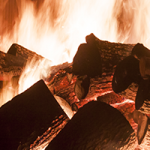Why You Should Buy a Wood Burning Stove for Your Home. Here are the answers.
You only need to have a quick look online to learn the horrors of extracting and burning fossil fuels. But to save you the trouble of searching Google, we’ll just tell you: oil, coal and natural gas have a devastating impact on the environment and our health.
From air and water pollution to land degradation, asthma and some groups have concerns cancer – even the waste products of fossil fuels can be hazardous to public health and the environment. Understanding the impact fossil fuels have is the only way to inform our choices and make changes to the future of energy production.
Let us leave you with this single sentence: fossil fuels are responsible for a fair proportion of the world’s global warming pollution and we use them every single day. Shocking, right? But what if there was a better solution? Thankfully, there is: renewable energy.
So, rather than look in-depth at fossil fuels across a wealth of sectors, including transportation and manufacturing, let’s focus on something simple – your home. Interested in learning why you should ditch fossil fuels in favour of a wood burning stove? We’ve got the lowdown for you.
Eco-Friendly
Now, we’re not about to tell you that stoves are 100% eco-friendly, but they’re a darn sight more eco-friendly than burning fossil fuels! Over the last few years, the materials and technology that are used to manufacturer wood burning stoves have evolved greatly.
Today, wood burning stoves are nowhere near as polluting to the environment as those from decades past. In fact, they’re much more eco-friendly than open fires!
Better still, by 2022 all wood burning stoves must comply with Ecodesign European standards in a bid to tackle air pollution and particulate emissions. This has prompted many manufacturers to focus on not only making sure that their stoves meet the European standards but exceed them!
Wood Burning Stoves Use Renewable Fuel
People who argue against wood burning as a fuel source often point out that the smoke emissions have a negative effect on the environment. Whereas this may be true, let’s not get carried away and look at the statistics.
Wood as a renewable energy source is far kinder to the environment that gas or electricity. Wood burning produces 0.008kg of CO2 per kWh. Gas produces 0.189kg of CO2 per kWh. Electricity produces 0.517kg of CO2 per kWh.
See the difference?
Wood burning stoves are much better for the environment than using gas or electricity to heat your home.
In fact, wood burning is largely considered carbon neutral. This means that the amount of carbon dioxide absorbed by a tree in its lifetime is roughly equivalent to the amount of CO2 when the wood is burned!
Any Negative Statistics Aren’t Exactly True
Research conducted by King’s College London found that 25-33% of London’s fine particle pollution comes from domestic wood burning. But can we trust this statistic?
The short answer is no. Why? 70% of wood burning emissions come from open fireplaces, not stoves. So, it cannot be accurately claimed that wood burning stoves are responsible for the fine particle pollution in our nation’s capital.
More interestingly, the percentage of people in the south east England who own a wood burning stove is much greater than in the rest of the UK. It’s estimated that 16% of people in the south east own a wood burning stove compared to 5% of people across the rest of the UK. The more wood burning stoves there are, the more emissions the air will have.
The Cost of Heating Your Home
Let’s be honest for a minute, the cost of heating a home is becoming ridiculous! Big energy companies are charging a fortune for gas and electricity with prices that are crippling the average Joe.
More annoying, the government’s promise that they’ll freeze energy prices seems to get pushed back year-on-year. However, consumers don’t have to keep being robbed blind by big energy. A wood burning stove partly frees consumers from the clutches of energy providers. Now, you may have to put up with the price fluctuations of firewood dealers, but can you honestly say that any increase in the price of wood come anywhere near the, as some would say, “scandalous tariffs” of big energy providers?!
The Efficiency of Wood Burning Stoves
Wood burning stoves aren’t just more eco-friendly, they’re more efficient. This means that less heat is lost when heating your home.
Some of the latest wood burning stoves are 80% efficient. This means that just 20% of the energy is lost through the chimney, with the remainder of the 80% heating your home. Compare that to an open fire which is only 20-25% efficient meaning that 75-80% of the heat is lost up the chimney and you start to see just how energy efficient wood burning stoves are.
Now, electrical heating may be considered 100% efficient because 100% of the energy is transferred into heat, however there’s still the issue of glazing. It’s believed that 66% of the heat is lost through a standard window. Now, you may already have double glazing in your home, which is fine. But for anyone with electrical heating and without double glazing, you’re losing 34% of your heat through the windows.
Should I Get a Wood Burning Stove?
The choice is up to you. We hope now that you’re a mite more informed about wood burning stoves than before you read this article.
The reality is that electrical energy is efficient. Gas central heating is generally cheaper than oil or electric. But wood burning has its own attributes to. From being eco-friendly to efficient, there’s a wealth of reasons to ditch fossil fuels for wood burning energy. Interested in learning more? Call us today on 0333 300 1299.





Leave a Reply
Want to join the discussion?Feel free to contribute!